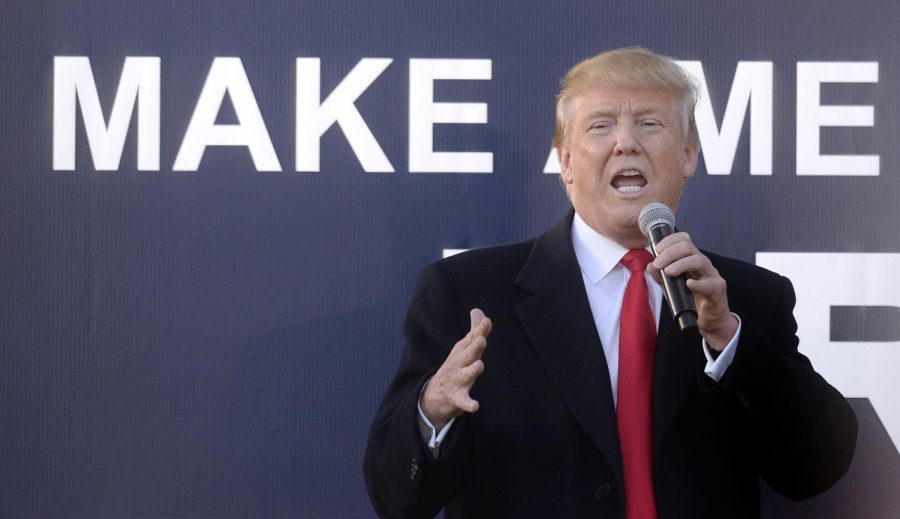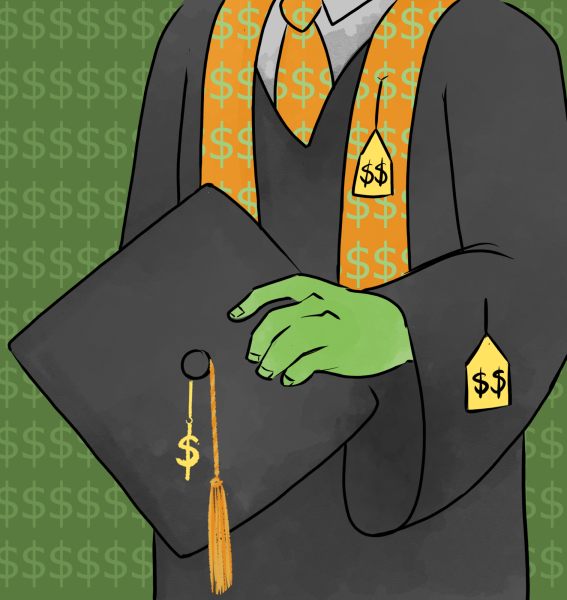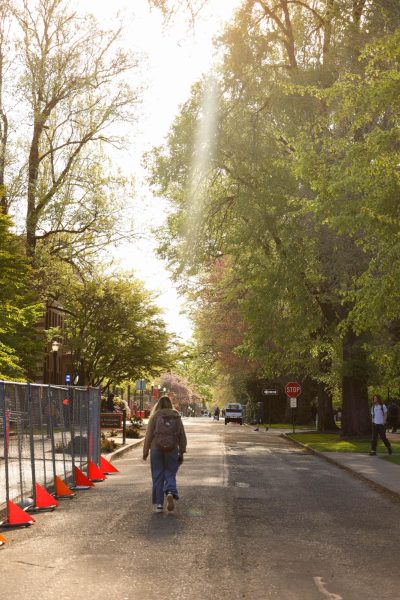Trump, Sanders represent public’s desire for change in politics
February 18, 2016
There seems to be one giant similarity between Bernie Sanders and Donald Trump supporters: We’re all frightened.
Only, we seem to express our fright in not so similar ways.
As the primary elections continue, there have been various signs of non-establishment candidates, Trump and Sanders, rising up in the polls and making waves. Though Trump failed to win the Iowa caucus, he swept up New Hampshire with a total of 35.2 percent of the vote total, a whopping 20 percent ahead of runner up Jim Kasich. Sanders beat Clinton by 22.4 percent with a total of 60.4 percent of the popular vote.
Seems like folks on both sides are fed up with establishment politics.
On one side, you have supporters of the GOP who continue to wonder where their great nation went (spoiler alert: their xenophobic vision never truly existed). On the other, you have a group of outspoken adult liberals—some older, the majority young—who continue to cry out about a broken system.
And don’t even get me started on the in-party GOP candidates (again). They’re all terrible in their own way, though some appear to have a redeeming quality or two that almost makes them look sane in terms of future world leadership (see: Marco Rubio).
The classic individuals who support Trump have proven themselves, in many cases, to be racist, homophobic and xenophobic individuals who claim that they’re tired of “political correctness.” In short, they wish they could be more slanderous without people calling them out for it.
Then we have the legend of the so-called “Bernie bros,” a group of loud, outspoken white males who support the Sanders campaign and fly off the handle when they notice something go wrong on their end. They don’t appear to be—key term, “appear”—the majority, but Sanders himself has had to call them out if they make any sort of insults against Hillary Clinton that come off as sexist.
No matter which way you look at it, all of this is a sign of fright.
It was renowned media scholar Noam Chomsky who made the best analysis of the situation: The GOP has become a radical caricature of what the party used to be, while the established democratic party—sometimes supporting a truckload of corporate “special interests” themselves—seems to be more right-aligned than the rising amount of millennial-aged progressive voters want.
So two questions: What the hell happened and what do we do now?
Well, for starters, voter turnouts haven’t been so great among young people. The 2000 election, which saw George W. Bush come out on top, saw a young voter turnout—that’s ages 18 to 29—of 48 percent as opposed to 66 percent when Barack Obama won in the 2008 election, according to data from the Pew Research Center.
This proves that, when younger voters want something done, they can get it done.
Right now, however, we have voters of all ages who continue to be confused about how these systems function.
And really, we have nobody but ourselves to blame.
I can’t count how many times I’ve attempted to discuss the elections with someone as their eyes glazed over.
“Oh no … he’s ranting about Bernie, Hillary and Trump again. Why doesn’t he just talk about ‘Call of Duty’ instead?”
Here’s what we should do.
Participate in the primary elections and do as much research as you possibly can on the candidates. Don’t just call it good after you watch political ads and two “town halls” on TV.
Hold your legislatures accountable. Understand that, ultimately, we’re the ones who have the power to put these people in office.
If we don’t participate, it allows the Democratic and Republican National Committees to basically do whatever the hell they want with the process (see: the DNC’s decision to assign Hillary so many extra superdelegates, because party reasons).
And we should not stop at the presidential elections. We need to make sure our system works on all levels and in all sectors. This is, after all, supposed to be a democracy.
We need to make the U.S. politics system work for everyone, not just “great” for a few.
The opinions expressed in Bassinger’s column do not necessarily reflect those of The Daily Barometer Staff.






















































































































